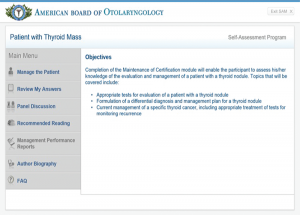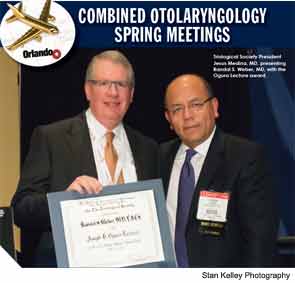Residents from institutions around the U.S. compete at the Triological Society’s 2015 Combined Sections Meeting.


Residents from institutions around the U.S. compete at the Triological Society’s 2015 Combined Sections Meeting.

Access to MOC levels Part II and IV available free to otolaryngology residents PGY levels two through five

Teachers favor fewer lectures, more learner-centered approach led by students

Tips for medical residents transitioning from training to job market

Panel discussions and keynote speeches stress importance of education, mentorship for medical trainees, and physician role in healthcare costs at the Triological Society’s Combined Sections Meeting in Miami Beach, Fla. in January

Physicians discuss ways to make care transitions smooth and smart as handoffs become more frequent

Revised education model would let residents explore specialty earlier, help meet demand for more surgeons, otolaryngologist Randal S. Weber, MD, told physicians at the Triological Society’s 116th annual meeting during the Combined Otolaryngology Spring Meetings

Studies show that distress, burnout, and depression in medical students and residents have contributed to a recent decrease in their empathy for patients

For residents embarking on their professional careers or physicians changing a career, navigating the many issues involved in making a decision that will significantly affect both their professional and personal lives can be daunting and challenging. To provide some guidance, practicing physicians with many years of experience in their respective careers discussed these issues during a session held here Sept. 13 at the 2011 American Academy of Otolaryngology–Head and Neck Surgery (AAO-HNS) Annual Meeting.